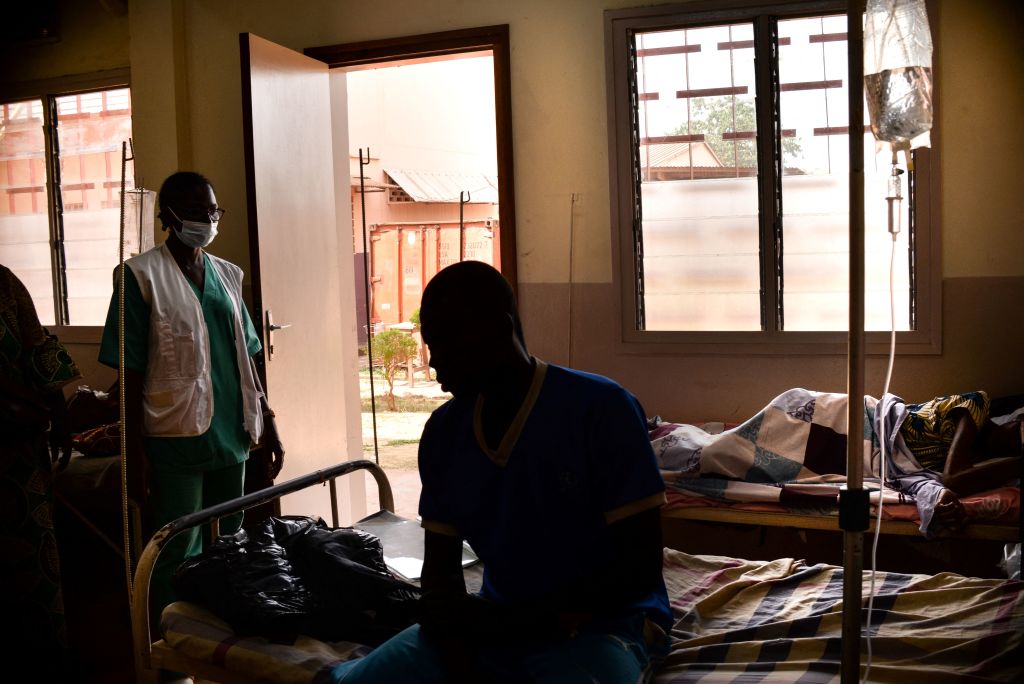COVID-19 Poses Higher Risk of Death to HIV Patients
ADF STAFF
New strains of COVID-19 continue to be particularly dangerous for people living with HIV, the World Health Organization reports.
As the omicron variant became the predominant strain globally, HIV-positive people did not experience the same decline in COVID-related deaths as those who do not have HIV. These findings, reported by the WHO, were based on information shared at this year’s International AIDS Society Conference on HIV Science. About 25.7 million people in Africa are infected with HIV.
The study analyzed data from 50 countries. It focused on nearly 363,000 people from the pandemic’s start to May 2022. About 96% of the data came from Africa. People with HIV had a 51% increased risk of dying after being admitted to a hospital with coronavirus, a slightly higher rate than in 2021, according to NAM AIDS, a charity that analyzed the study.
Some symptoms, such as fever, shortness of breath, fatigue, headaches, chest pain, loss of smell and muscle aches, were more common in people with HIV. Coughing was less prevalent in those with HIV, the data showed.
HIV-positive people who contracted COVID-19 also had more underlying health conditions than did HIV-negative patients: 59% of HIV-positive patients had at least one underlying health condition compared to 45% of HIV-negative patients. The most common underlying health conditions were hypertension, obesity, tuberculosis and diabetes, according to NAM.
The pandemic overwhelmed many health systems across the continent, causing significant disruption to HIV treatment and prevention programs. Key testing and prevention services declined in 13 countries supported by the Global Fund to Fight AIDS, Tuberculosis and Malaria between 2019 and 2020; 12 of the countries were in Africa, Nature magazine reported last year.
“COVID-19 has made the fight against HIV all the more challenging, but one virus must not win out over another,” Dr. Matshidiso Moeti, WHO regional director for Africa, said in a news release. “We must tackle COVID-19 and HIV in parallel.”
Funding for HIV also declined during the pandemic as international charities and national health systems diverted resources toward COVID-19.
In response, some African nations turned to community-led monitoring efforts. In South Africa, for example, health officials teamed with Ritshidze, a program devoted to improving the quality of public health service for people with HIV and tuberculosis. The idea behind community monitoring is to provide an evidence base for advocacy efforts.
Between August and October 2021, the program collected nearly 6,000 surveys from people using health services across 18 districts and seven provinces in the country. Results showed that 20% of populations with HIV and tuberculosis were unable to access treatment.
The data helped South Africa secure a fivefold increase in funding from its most recent Global Fund application, NAM reported.
Africa made significant gains in its battle against HIV from 2011 to 2021, the WHO reported. In that time, the continent reduced new infections by 43% while AIDS-related deaths were down almost 50%.
However, only nine countries — Botswana, Cabo Verde, Kenya, Lesotho, Malawi, Nigeria, Rwanda, Uganda and Zimbabwe — are on track to reach AIDS elimination milestones by 2025, the WHO reported in December 2021.
“Africa has come so far, and we know how to end AIDS,” Moeti said in a news release. “But unless governments make a fresh push, increasing resources and commitment to strengthening their fragile health systems, we will not reach the last mile.”


Comments are closed.